Don't Void Your Coverage: Top 5 Warranty Exclusions Every Nissan Owner Must Know
Understanding Your Nissan's Standard Warranty
Before we jump into what's *not* covered, let's briefly touch upon what typically is. When you purchase a new Nissan, it usually comes with a basic (bumper-to-bumper) limited warranty and a powertrain limited warranty. The basic warranty generally covers most components of your vehicle against defects in materials or workmanship for a specific period or mileage (e.g., 3 years/36,000 miles, whichever comes first). The powertrain warranty typically covers major components like the engine, transmission, and drivetrain for a longer period (e.g., 5 years/60,000 miles).
These warranties are designed to protect you from manufacturing flaws, giving you confidence in your vehicle's quality. However, they are not an 'all-you-can-eat' service plan. Like any intricate legal document, your Nissan warranty comes with specific terms, conditions, and, most importantly for this discussion, exclusions. Knowing these limitations is key to preventing costly surprises down the road.
Why Understanding Warranty Exclusions Matters for Nissan Owners
Imagine taking your Nissan in for a repair, fully expecting it to be covered, only to be hit with a bill for hundreds or even thousands of dollars. This frustrating scenario often happens because owners are unaware of what their warranty explicitly excludes. Understanding these exclusions isn't just about saving money; it's about making informed decisions about your vehicle's care, maintenance, and modifications.
Ignoring the fine print can lead to your warranty being partially or entirely voided, leaving you responsible for repairs that you thought were covered. For any Nissan owner, this knowledge empowers you to maintain your vehicle in a way that preserves your coverage, maximizing the longevity and value of your investment. It's about proactive protection for your beloved Nissan.
Exclusion #1: Normal Wear and Tear Items
This is perhaps the most common misconception among car owners. Your Nissan warranty is designed to cover manufacturing defects, not the natural degradation of parts that occur through regular use. Think of it this way: your shoes wear out over time; that's not a defect in the shoe's manufacturing (unless they fell apart prematurely). The same principle applies to your vehicle.
Items typically excluded under 'normal wear and tear' include: tires, brake pads and rotors, clutch components (for manual transmissions), wiper blades, spark plugs, filters (oil, air, cabin), fuses, light bulbs, and various fluids (oil, coolant, brake fluid) that require regular replacement. While some of these might have limited coverage for initial defects, their routine replacement due to normal use will always be out-of-pocket. Regular checks of these components are part of responsible Nissan ownership and essential for safety and performance.
Exclusion #2: Lack of Maintenance & Improper Service
Your Nissan's warranty is contingent upon you following the recommended maintenance schedule outlined in your owner's manual. Failing to perform routine oil changes, tire rotations, fluid checks, and other scheduled services can absolutely void coverage for related components. For example, if your engine fails due to sludge buildup from neglected oil changes, Nissan is highly unlikely to cover the repair.
Furthermore, improper service or the use of non-genuine Nissan parts can also lead to exclusions. While you're not required to use a Nissan dealership for all service, it's crucial that any independent shop adheres to Nissan's specifications and uses high-quality, appropriate parts. If a non-OEM part or incorrect repair procedure causes a component to fail, your warranty for that specific component (and any related damage) could be voided. Always keep detailed service records, including dates, mileage, and parts used, as proof of proper maintenance.
Exclusion #3: Accidents, Misuse, and Environmental Damage
Your factory warranty is not an insurance policy against accidents or negligence. Any damage resulting from collisions, vandalism, theft, or misuse (such as racing, off-roading with a non-off-road vehicle, overloading, or using the vehicle for purposes it wasn't designed for) will not be covered. This makes perfect sense; these are events outside of a manufacturing defect.
Beyond direct driver actions, environmental factors are also typically excluded. Damage from natural disasters like floods, hail, earthquakes, or fires is not covered by your Nissan's factory warranty. Similarly, damage from chemical fallout, tree sap, road salt corrosion (beyond specific rust-through warranties), or other external elements will fall outside the scope of your coverage. These types of damages are usually handled by your comprehensive auto insurance policy, highlighting the importance of having adequate insurance coverage in addition to your vehicle's warranty.
Exclusion #4: Aftermarket Modifications
The allure of customizing your Nissan with aftermarket parts can be strong, whether it's for enhanced performance, aesthetics, or utility. However, installing non-Nissan approved parts or making significant modifications can be a quick way to void your warranty for related components. For instance, if you install an aftermarket performance chip that alters engine parameters, and your engine or transmission subsequently fails, Nissan may deny warranty coverage, claiming the modification caused or contributed to the failure.
This doesn't mean all modifications void your entire warranty. The Magnuson-Moss Warranty Act generally protects consumers, stipulating that a manufacturer cannot void a warranty simply because an aftermarket part was used. However, the manufacturer *can* deny coverage if they can prove that the aftermarket part or modification *caused* the issue. It's a critical distinction. Always exercise caution and, when in doubt, consult with your Nissan dealership or refer to your warranty booklet before making significant changes to your vehicle, especially those affecting powertrain or electronic systems. Stick to genuine Nissan accessories where possible to maintain peace of mind.
Exclusion #5: Salvage, Total Loss, or Altered Odometer Vehicles
A vehicle's history plays a significant role in its warranty status. If your Nissan has been issued a 'salvage' or 'total loss' title by an insurance company (meaning the cost of repair exceeded a certain percentage of its value, usually due to significant damage), its factory warranty is typically voided. These titles indicate a vehicle has sustained extensive damage, making its long-term reliability questionable and outside the scope of a manufacturer's guarantee.
Furthermore, any vehicle where the odometer has been tampered with or disconnected will also lose its warranty coverage. The odometer is crucial for tracking mileage-based warranty periods and maintenance schedules. An altered odometer makes it impossible for Nissan to verify the vehicle's true usage, thus invalidating the warranty. Always perform a thorough vehicle history check (like a CARFAX report) when buying a used Nissan to avoid inadvertently purchasing a vehicle with a compromised warranty status.
Proactive Steps: Keeping Your Nissan Warranty Intact
Navigating warranty terms doesn't have to be daunting. By being proactive, you can ensure your Nissan's warranty remains a valuable safety net. First and foremost, read your owner's manual and warranty booklet thoroughly. These documents are your primary source of truth for all things related to your specific Nissan model's coverage.
Secondly, adhere strictly to the recommended maintenance schedule. Don't skip services, and always keep detailed records of all maintenance performed, including dates, mileage, and parts used. Whether you go to a Nissan dealership or a certified independent shop, good record-keeping is your best defense. Thirdly, choose genuine Nissan parts or high-quality OEM-equivalent parts for replacements. And finally, think twice before making significant aftermarket modifications. If you're considering a modification, discuss it with your Nissan service advisor to understand potential warranty implications. By taking these steps, you're not just preserving your warranty; you're also ensuring your Nissan performs optimally for years to come.
Conclusion
Understanding your Nissan's warranty isn't just about knowing what's covered; it's crucially about knowing what isn't. By familiarizing yourself with these top five warranty exclusions – normal wear and tear, lack of maintenance, misuse/damage, aftermarket modifications, and specific vehicle statuses – you empower yourself to make informed decisions. Keep up with your scheduled maintenance, use genuine Nissan parts, drive responsibly, and avoid unapproved modifications. Doing so will not only ensure your Nissan runs smoothly for years to come but also keeps your valuable factory warranty intact, providing the true peace of mind you deserve as a proud Nissan owner.Where can I find my VIN?

Related Topics
- Keeping Your Warranty Valid: Essential Maintenance Tips Every INFINITI Owner Should Know
- Your Ultimate Guide to Buying a Pre-Owned Infiniti: Unlocking the Value of CPO
- Infiniti CPO vs. CPO Select: Comparing the Certified Pre-Owned Warranty Programs
- Warranties Explained: New vs. Certified Pre-Owned (CPO) INFINITI Coverage - Which is Right for You?

